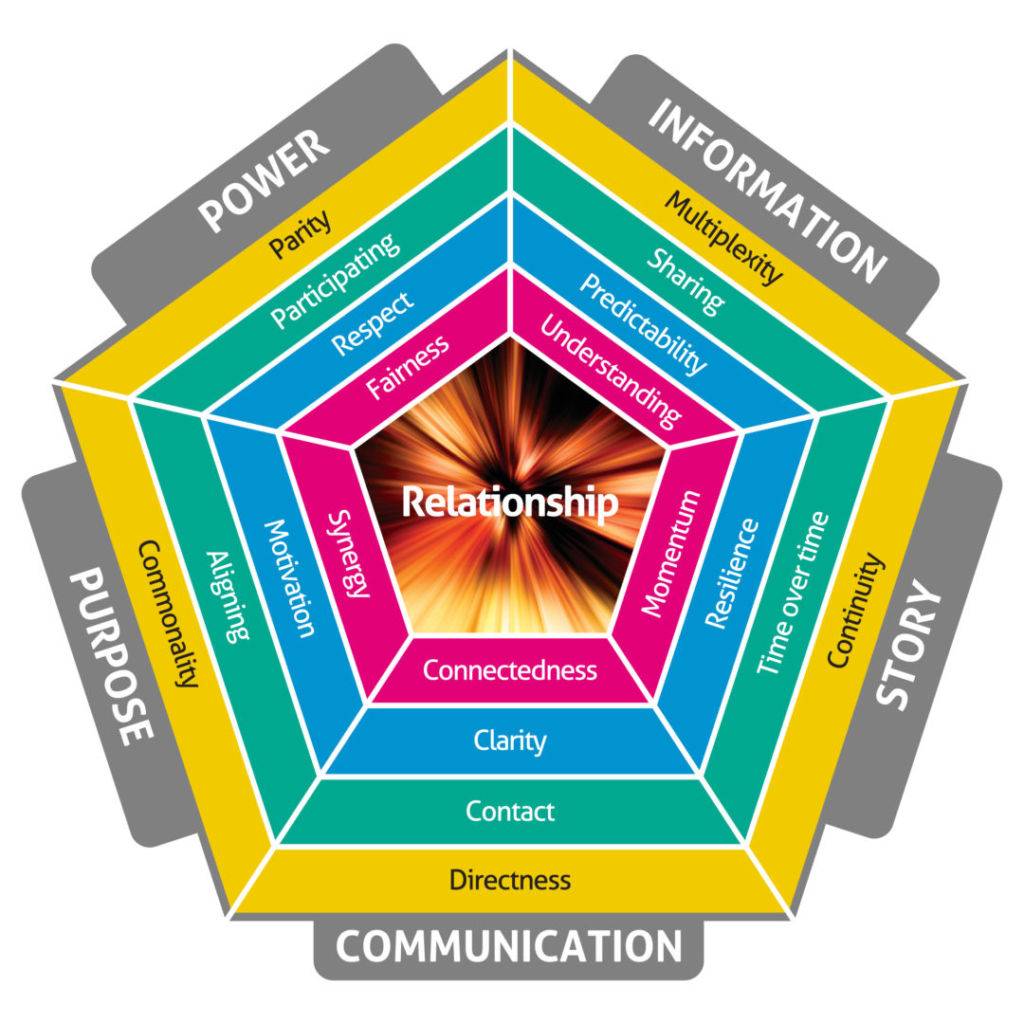As executive director of Relational Analytics Prabhu Guptara focuses on managing organisational relationships. Until now, we have lacked a system to measure the dynamics of organisational relationships. But knowing why some of our Organisation’s relationships are good, and why others hurt, helps shape the impact of our Organisation on society. It also helps understand whether our public value creation is aligned with our ecosystem’s expectations. We asked Prabhu Guptara what public value means to him:
What does public value mean to Relational Analytics?
To us in Relational Analytics, public value is the natural and inevitable consequence of good relationships between individuals, groups, organisations and the environment. Each of the relationships, and any set of relationships, can be measured – with a view to highly-focused interventions, at points of greatest leverage, in order to strengthen the relationships.
Please explain your approach in developing the strengths of the relational capital of any company.
Every company sits within a web of relationships, internal and external. Examples of internal relationships are: between hierarchical levels, between locations, and between divisions or units or functions – or indeed across any of these.
Examples of external relationships are: with investors, suppliers, government(s), regulators, expert groups, communities, and marketing channels. So you could pick any one of these relationships, or any set of relationships (one-to-many, or many-to-many) and run an exercise to measure the relationships and therefore (if you wish) develop them.
Alternatively, you can map all of these relationships simultaneously in order to have a dashboard of them all, so that you can see which relationships are working fine, which could do with a bit of attention, and which most seriously need attention.
Relational capital quantifies the financial value of the relationship(s) and identifies the “financial-capital-at-risk”. The goal of the exercise is to reduce “financial capital at risk” and increase financial capital.
Should society and the environment be considered as active stakeholders of companies?
Well, both “society” and “environment” are too amorphous to be considered stakeholders, but they are usually “represented” by stakeholders – for example, by a local community group or by the International Union for the Conservation of Nature.
Why is it important to consider them as stakeholders?
In fact, an increasing number of companies are now considering them important stakeholders, for the very clear reason that any unhappy stakeholder needs to be responded to in some way, often at a time that is inconvenient for a company’s senior executives.
Good relationships enable an entire organisation to operate in the most effective and productive way.
Prabhu Guptara
Bad relationships distract energy which is better devoted to positive goals.
Good relationships enable an entire organisation to operate in the most effective and productive way.

A key challenge is to make societal and/or social impact data comparable. When we will have comparable performance indicators on social and environmental impact?
Well, many organisations are working on creating comparable performance indicators (KPIs) on social and environmental impact, for example the International Integrated Reporting Council. Whether any of the work that is being done on creating comparability between KPIs will in fact increase care for the environment remains to be seen. Naturally, we will be delighted if it does.
What Relational Analytics can offer is comparability for organisations on relational capital, and that certainly has its uses from the perspective of investor relations.
But most of our work so far hasn’t focused on abstract comparability, most of it has focused on helping individual companies to perform better – which has an impact on investor relations, productivity, share price, and of course public value.”
Your Public Value will continue to interview experts in the field of sustainability and public value. Please let us know what your current challenges are and how you’re currently growing your business while creating public value. We look forward to hearing from you and to sharing on our social media channels!

